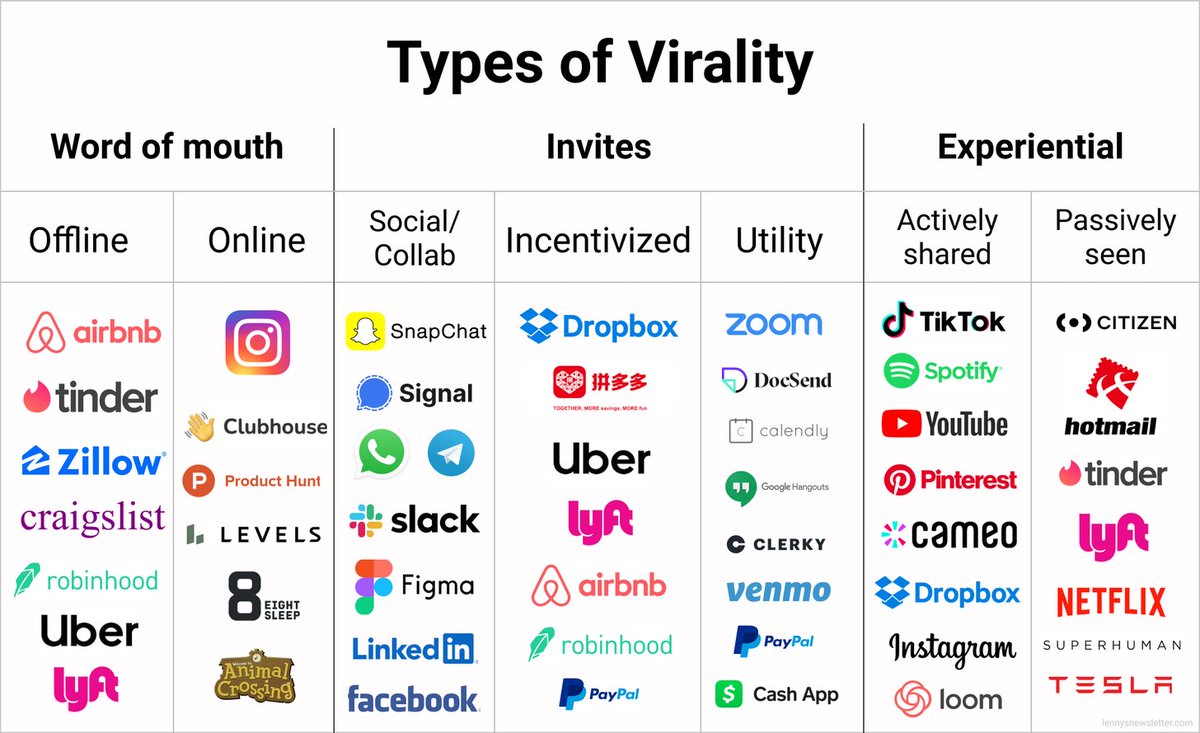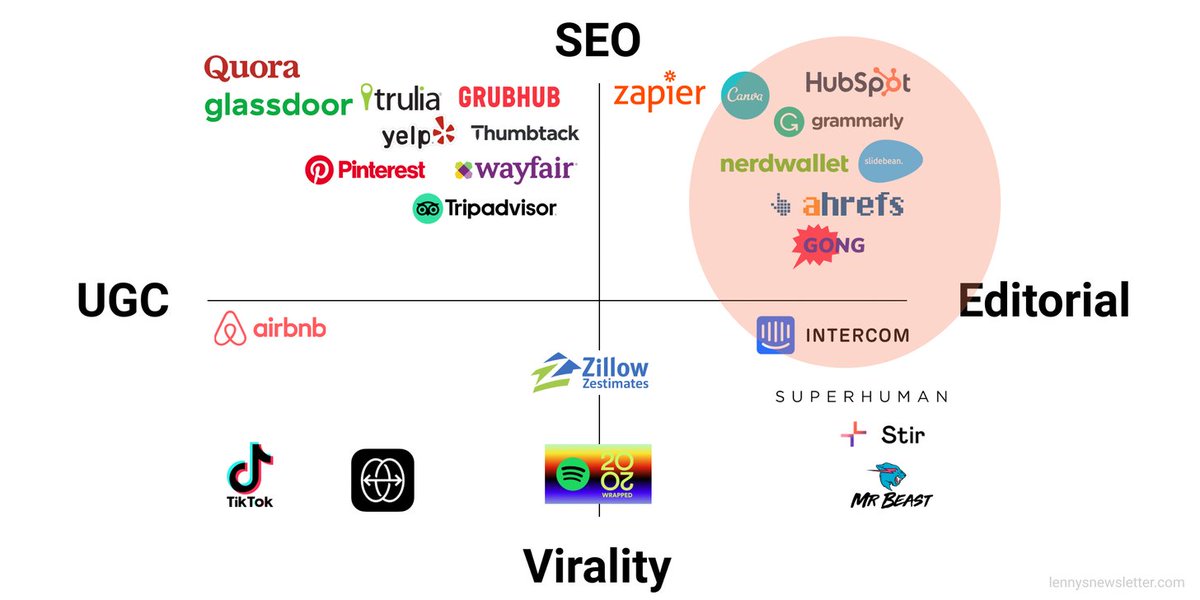Just looked up my newsletter growth since I started writing... Nov ‘12 - 0 Nov ‘13 - 33,000 Nov ‘14 - 100,000 Nov ‘15 - 215,000 Nov ‘16 - 360,000 Nov ‘17 - 315,000* Nov ‘18 - 440,000 Nov ‘19 - 575,000 Nov ‘20 - 960,000 *removed 100k “dead” subscribers to keep the list healthy
VaynerX Presents: Marketing for the Now Episode 26 with Gary Vaynerchuk pscp.tv/w/c-0mR3R3LTU3…
Ghana’s Tourism Board deserves a marketing award
In just 30 minutes, @artsy's @Everette joins #AdweekChat to talk marketing, accessibility in the art field, career goals and more. Join us from 2 - 3 PM ET! Check out "The Underdog Tips for Success" and more on his CMO Moves episode with @NadineDietz: adweek.com/inside-the-bra…
Today I'll be speaking at @trainual's Playbook 2020 about "Getting The Most Bang For Your Marketing Bucks" with some awesome fellow marketers @RyanBonnici @ErinBlaskie and @ianfaison Join us, its free playbook2020.com pic.twitter.com/hGXrHoYSM9

Kanye West x Sha’Carri Richardson for Beats by Dre. Great marketing. pic.twitter.com/PRVhCmVWP4
I love tactical stuff like this on twitter. @GrowthTactics you just earned a new fan twitter.com/GrowthTactics/…
Be good at marketing and you’ll never need sales. twitter.com/FitFounder/sta…
What is the most clever customer acquisition strategy you’ve ever seen?
🐦 Thoughts on startup distribution twitter.com/immad/status/1…
The 4 steps of bottom-up B2B growth: 1. Find design partners (through friends, former colleagues, investors) 2. Close impressive logos (through former colleagues, warm intros, cold outreach) 3. Scale PLG through founder-led warm and cold outreach + WOM 4. Layer on a sales team
Low-frequency marketplaces can work. You just need the math to work. You have 2 paths: 1. Near-zero CAC (through SEO or virality): @thumbtack, @BookCameo, @PinduoduoInc, @fiverr, @zillow, @Zola 2. Large AOV: @Airbnb, @Outdoorsy, @officialgooddog, @Opendoor, @Hacker0x01
Strategy #7: Increase engaged users One final strategy for increasing viral growth is to increase the number of engaged users — users who in turn will bring in new users. You’re essentially putting more fuel on the fire.
Strategy #6: Increase experiential serendipity This form of virality is when people see the product in action during the normal course of events. Examples: Citizen, Hotmail, Tinder, Superhuman, Dropbox
Strategy #5: Generate content that users want to share with friends This form of virality comes from content generated through the product, which your users can’t help but share with their friends. Examples: Spotify Wrapped, TikTok videos with watermark, Pinterest boards
Strategy #4: Make the product *only* useful when using it with friends or colleagues This includes products that are utilitarian, and is even harder to engineer after the fact. But it is worth thinking about this when you’re in the idea stage. Examples: Calendly, DocuSign, Zoom
Strategy #3: Make the product better when more friends or colleagues use it This is the most classic way to create viral growth and is hard to engineer after the fact. But there are certainly ways to optimize it. Examples: Figma, Datadog, Snapchat, Signal, LinkedIn
Strategy 2: Incentivize word-of-mouth and inviting People respond to incentives — what’s it in for them to spread the good word about your product? Examples: Dropbox, Paypal, Pinduoduo, Robinhood
Strategy 1: Nurture organic word-of-mouth Word-of-mouth is primarily driven by remarkable experiences (an experience worth remarking about), so start there. Examples: Tinder, Clubhouse, Airbnb, Levels
7 ways to increase your product's virality: 1. Nurture WOM 2. Incentivize WOM 3. Make the product better w/ friends/colleagues 4. Make the product only useful w/ friends/colleagues 5. Generate sharable content 6. Increase experiential serendipity 7. Increase engagement Thread 🧵
User researchers: What's in your software stack? What software/tools do you use most regularly to do user research?
The 7 distinct types of product virality (aka how your product can spread): 1. Online WOM: Learning about products through mentions on social media (e.g. @joinClubhouse) 2. Offline WOM: Learning about products while talking to friends or colleagues (e.g. @Airbnb) Read on 🧵 pic.twitter.com/FNGHbS4I1Q

Peek at this week's post pic.twitter.com/POce56nQP6

Tobi states that almost EVERY DECISION your business makes can pivot on JUST one question: "Are you optimizing for every individual transaction or the LIFETIME transaction?" - Tobi Are you playing INFINITE games or FINITE games with your customers?
High leverage e-commerce wins: 1. Reduce checkout friction - Apple/Android Pay for the win 2. Quality photos - Don't have filthy cars in the car showroom 3. Free delivery - The Amazon generation hates paying 4. Social proof - Nobody buys what they don't trust.
The best accounts I've found for online/growth marketing: @datarade @TaylorHoliday @ReeceWabara @Julian @suumitshah @iamshackelford @social_savannah @jmbolling @mkobach @craigclemens @mrsharma @david_perell @ecomchasedimond @GoodMarketingHQ 👆Array of talent Anyone missing?
There's a lot of great marketers who identify as average but are actually just selling a bad product. There's a lot of average marketers who identify as great but are actually just selling a great product.
This results in what I call “The Doerr Problem” Whatever is easiest to be measured will be optimised for We chase width because it’s easy to measure “What gets measured gets managed.” - John Doerr If you can measure depth, you could change the internet’s click bait culture
The biggest problem internet companies + creators face: It’s much easier to measure width metrics than depth metrics currently.
Width metrics: • Impressions • Followers • Likes • Views Depth metrics: • DM’s • Super fans • Word of mouth • Remembering it 6 months from now All the long term wins for businesses and creators are going to those who invest in depth.